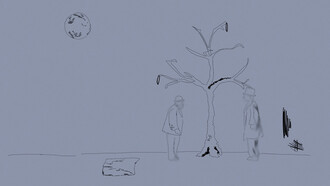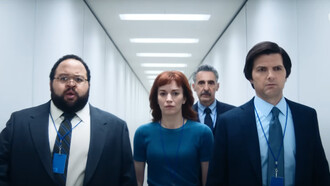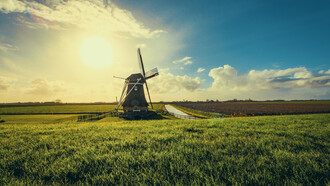I had the chance to watch Colossal last June at Sheffield DocFest, and I’m still reverberating from the impact. As someone who has spent decades producing and shooting documentaries and special reports—from femicide on the Turkish border to Tibetan exile—few films have left me with such a deep sense of urgency and introspection as Colossal: A Family Archive Becomes a Mirror for Democracy’s Decline.
The debut feature by Dominican filmmaker Nayibe Tavares-Abel, Colossal, is a masterful excavation of personal and political memory. Blending archival footage, family interviews, stylized re-enactments, and visual metaphor, Tavares-Abel transforms her own fractured lineage into a haunting reflection on truth, silence, and complicity in democratic decline.
Premiering at Berlinale’s Forum 2025 and already lauded at Hot Docs’ Tipping Point and Cinéma du Réel’s Fronts Populaires, Colossal continued to gain momentum with its screening at Sheffield DocFest.
At the center of the story is a family marked by conflicting roles in the Dominican Republic’s history. Her grandfather, Froilán Tavares, led the country’s electoral commission during the controversial 1990 election that returned Joaquín Balaguer—an aging authoritarian figure—back to power. Meanwhile, her uncle, Amín Abel, was a revolutionary student leader murdered in 1970. Through this intergenerational juxtaposition, the film poses a bold question: What happens when personal memory is at odds with national mythology?
What sets Colossal apart is Tavares-Abel’s courage to confront her own family history—to hold up a mirror not only to the nation but also to the complex legacies within her bloodline. Rather than offering a linear narrative or political judgment, she submerges us in a shifting terrain of ambiguity. Photographs float across the screen like ghosts, while state footage collides with whispered family testimonies. The result is a poetic interrogation of how history is constructed—and who gets to construct it.
Tavares-Abel’s style recalls the meditative rigor of Patricio Guzmán or Petra Costa, yet her voice is distinct. She resists both sentimentality and accusation, allowing contradiction to sit uncomfortably at the film’s core. It is this discomfort that makes Colossal so effective, especially in a time when many democracies are facing their own reckoning with authoritarian pasts—and presents.
A DocFest programmer described the film as “a rare act of courage,” noting how few filmmakers are willing to mine their own bloodlines in search of a nation’s uneasy truths. I would add that few do it with such intellectual clarity and emotional restraint.
The timing of Colossal couldn’t be more poignant. As the Dominican Republic prepares for future elections and as many across Europe, Latin America, and the U.S. confront deepening crises of institutional trust, this film serves both as a warning and an invitation. It challenges viewers to confront the silences in their own histories—family, national, or otherwise.
In an interview with Meer, Tavares-Abel remarked, “Democracy doesn’t vanish overnight. It dissolves through our complicity, our silence, and the stories we fail to tell.” In that spirit, Colossal becomes more than a film—it becomes an act of civic memory, a cinematic resistance against forgetting.
What was the emotional or political spark that pushed you to turn your family’s history into a public act of remembrance and resistance?
When I was in high school, I remember how some of my classmates would praise Balaguer and would justify the violation of human rights, like the murder of my great uncle, because, according to those classmates, that was the only way to prevent the Dominican Republic from becoming a "second Cuba." From a young age, because of my family history, I knew that what we were taught in schools about Balaguer's regime was not accurate. I guess that was the first spark that led me to study the history of democracy in my country.
In excavating your grandfather’s and uncle’s roles in Dominican history—one linked to institutional power, the other to revolutionary struggle—what contradictions did you confront within yourself?
I guess all families have that kind of dynamic. I first discovered that my great uncle and my grandpa were political rivals when I was doing my master's thesis on student movements in the DR in the 60s. I was fascinated by the letters they sent each other and by how fervently they both defended their ideas. At an ideological level, I guess I would identify more with Amin's ideas. However, Amin put his militantism before his family; he sacrificed himself for a cause, leaving behind a widow and two orphans. On a personal level, I think I align more with my grandfather Froilán because he put his family first. It's a complicated dilemma, and I don't wish to condemn either of them. But I am a mother now, and I think I'd sacrifice anything for my son’s safety.
How did you decide what to reveal and what to leave unsaid? Was there ever a line between personal loyalty and historical responsibility?
Because of my background in social sciences, I understand how important it is to preserve the dignity of our subjects of study. We're dealing with real people that have real lives. They deserve respect. One of my uncles asked not to reveal the reason why he was arrested, and as a team we chose to respect that. In the end, why he was arrested didn't matter. What matters for our film is that Balaguer and his authoritarian regime sought to use someone's personal life to coerce a public official.
You construct Colossal not just from facts, but from fragments—archival footage, dreamlike visuals, whispered memories. How did you find the language to speak about silence?
The cinematography, cinematic language, and editing decisions were a team effort. My editor always told me, Silence speaks louder than words. I think a good example is the scene with my grandpa's driver. He's wearing a mask, but he's not really covering his mouth. He wants to talk but doesn't really say anything, except that we understand everything.
Was there a moment in the process when you feared this film would never be finished, or never be accepted, especially within your own country?
I wanted to quit many times. The film took a toll on my mental health. I was fortunate to have an amazing team of powerful women who inspired me to move forward when things got rough.
What do you think is at stake when a society refuses to fully reckon with its authoritarian past? And how does that unfinished reckoning echo into everyday life today?
The wound that doesn't heal festers. Authoritarianism is very much ingrained in Dominican culture. Just to give you a quick example, many public institutions don't allow entrance to people wearing shorts or short sleeves, although it's a Caribbean country and it's always +30°C. Another example is the unspoken rule that if you are a government employee, you're forbidden to speak against the government.
We’re seeing a global erosion of trust in institutions, from the Americas to Europe. What parallels do you see between the Dominican experience and current democratic crises elsewhere?
The 20th century was marked by many dictatorships and authoritarian regimes all over Latin America. They usually follow a specific blueprint: erosion of minority rights, cult of strong male authority, identifying immigrants as the enemy, return to "traditional" values, and limits to freedom of the press and the right to protest. Although we can be critical of him because of his links to slavery, I think Ben Franklin put it perfectly into words: "Those who would give up essential liberty to purchase a little temporary safety deserve neither liberty nor safety."
Your work has drawn comparisons to filmmakers like Petra Costa and Patricio Guzmán—artists who merge the personal and political with precision. Who shaped your cinematic voice, and what stories do you feel still aren’t being told?
Wow, it's truly a great honor to be compared to extraordinary filmmakers such as Patricio Guzmán and Petra Costa. I've definitely been inspired by their work. Other references that are important to my work are Agnes Varda, Abbas Kiarostami, Albertina Carri, Sarah Polley, João Moreira Salles, Guy Maddin, and Alan Berliner. In regard to stories that aren't being told, for a long time, filmmaking was reserved for the privileged. To be able to afford film school, or even to aspire to be a filmmaker, was a class privilege. Thanks to the new technologies of the 21st century, anyone has access to a camera and editing tools on their phones. I think that's great because it democratizes filmmaking.
As an independent filmmaker from the Global South, what structural barriers did you encounter trying to bring Colossal to international audiences, and what would meaningful support actually look like?
That's a tough question. Unfortunately, a lot of the financing opportunities in film come from the Global North. Sometimes, this means that Latin American and Caribbean filmmakers must cater to the European gaze to access that type of financing. I find a lot of inspiration in Carlos Mayolo and Luis Ospina's manifesto film "The Vampires of Poverty." The film is a sharp critique of “misery porn” and the opportunism of dishonest documentary filmmakers who make “socio-political documentaries” in the Third World in order to sell them in Europe and win awards and recognition.
What conversation do you hope Colossal provokes—not just in the Dominican Republic, but in places where democracy feels fragile and memory feels contested?
With our film, we wanted to show how vulnerable democracy is. It's not a perfect system, and the only way to preserve it is for citizens to stay involved and active, not only through voting but also through protests and staying informed.
For those who can’t attend festivals, will there be a way to watch Colossal soon? And are you still looking for distribution support?
Colossal is not available online yet, but we hope to make a deal with a broadcasting or online streaming service by mid-2026.
Thanks for your insightful questions.















